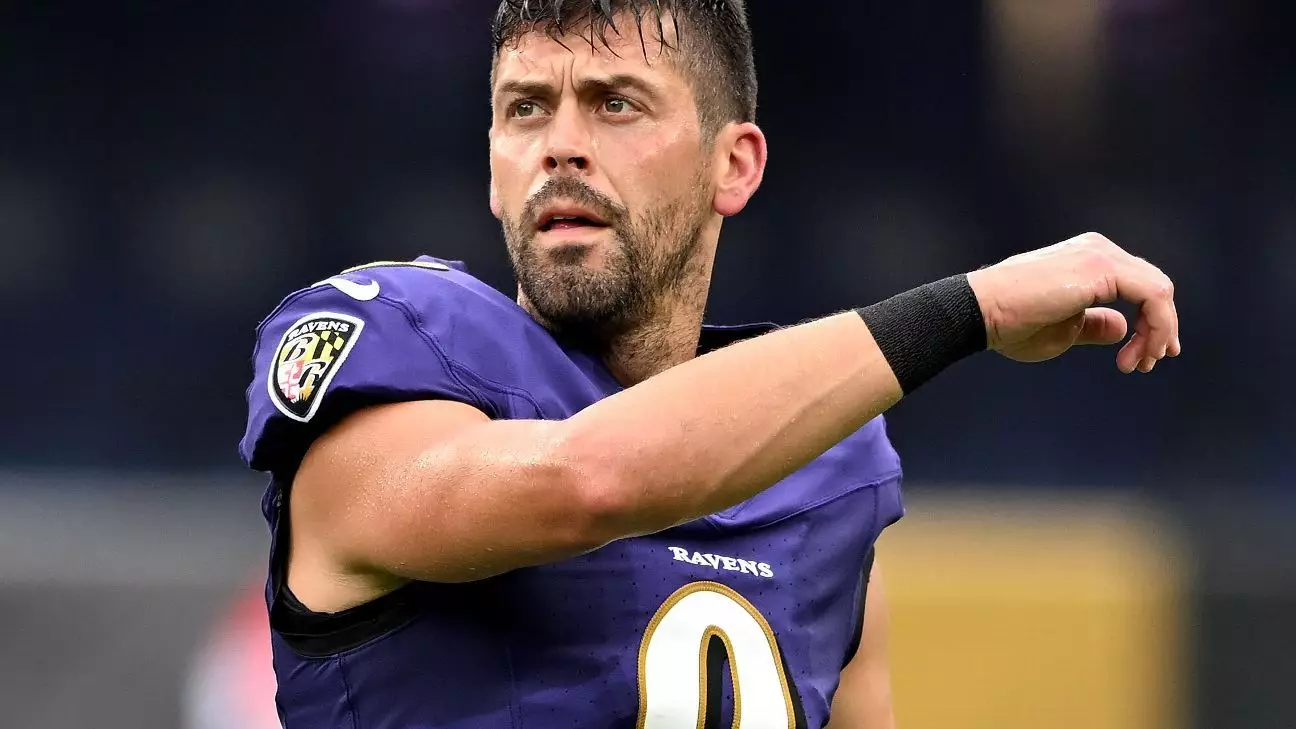Justin Tucker’s suspension from the NFL for violating the league’s personal conduct policy thrusts one of the sport’s most celebrated kickers into a shadow far larger than his on-field achievements. For years, Tucker has been known as a cornerstone of the Baltimore Ravens, arguably the most accurate kicker in NFL history and a symbol of consistency and excellence. Yet, this suspension for allegations of sexual misconduct unrelated to his athletic performance forces a reckoning that neither sports fans nor the league can ignore any longer. It’s not simply a scandal involving a star player—it’s a clear reflection of how sports culture grapples with accountability in cases of alleged abuse and the limits of forgiveness.
Complexity of Allegations and the Limits of Justice
The allegations stem from multiple complaints made by 16 massage therapists from upscale wellness centers, recounting incidents that happened nearly a decade ago, between 2012 and 2016. This timing coincides with the early part of Tucker’s career, raising troubling questions about the long duration these serious accusations remained unaddressed. The fact that these women only recently came forward or felt heard highlights a systemic failure, not only in sports but across all industries where power dynamics and silence unfairly protect the privileged.
Tucker’s denial of the allegations and his characterization of the reports as “desperate tabloid fodder” feel dismissive, even corrosive, in an era that is supposed to foster survivors’ voices. While due process and the presumption of innocence remain vital, the defensive posture taken by Tucker and his camp echoes a recurrent theme in sports: athletes invoking their status as a shield against accountability. This defensive tactic often retraumatizes victims and inhibits broader conversations about misconduct in professional environments.
Insufficient Punishments and the Burden on Victims
The NFL’s decision to impose a 10-week suspension, though meaningful in terms of loss of playing time and income, has been widely criticized as inadequate. When we compare the severity of the punishment to the long-term emotional and professional damage reported by the massage therapists—some of whom have left their careers—the penalty appears more like a symbolic gesture than a genuine accountability measure.
The NFL is notoriously inconsistent with personal conduct penalties, often leaning toward protecting its stars and the league’s brand over delivering substantial sanctions. This half-measure punishment risks sending a dangerous message: that alleged misconduct by elite athletes can be shrugged off with a short suspension and a fine. The league’s broader responsibility extends beyond public relations; it must foster a culture where ethical behavior is uncompromisingly valued and misconduct swiftly and thoroughly addressed.
The Role of Teams and Responsibility Beyond the League
Baltimore Ravens’ decision to release Tucker shortly after the allegations came to light was necessary but raises questions about the team’s prior oversight. Protecting players with dubious behavior out of loyalty or concern for competitive advantage is an unhealthy precedent for professional sports. The Ravens’ handling of the situation, especially given Tucker’s veteran status and lucrative contract extension, underscores how teams sometimes prioritize on-field performance at the expense of moral integrity.
Teams and leagues must face the uncomfortable reality that their responsibility goes beyond treating athletes like commodities. They should implement rigorous education, transparent investigations, and victim-focused support mechanisms. Failing to do so perpetuates cycles of abuse and silence, with the scars lasting far beyond the playing field.
Evaluating the Larger Impact on NFL Culture
Tucker’s suspension places the NFL one more step toward reckoning with its history of mishandling allegations of personal misconduct. The league’s future will depend largely on how consistently and seriously it enforces its conduct policies, especially when star players are involved. The tenuous balance between preserving the sport’s entertainment value and promoting ethical accountability remains an ongoing challenge.
From a center-wing liberal perspective, the NFL must embrace progressive disciplinary frameworks that neither dismiss due process nor excuse harmful behavior due to celebrity status. True leadership means setting a precedent that no individual, however talented or marketable, is above the standards that protect the dignity and safety of others.
In examining this troubling episode, it becomes clear that the time for superficial consequences in professional sports is over. Real progress depends on confronting uncomfortable truths, fully supporting survivors, and transforming sports culture into a space where character matters just as much as skill. Justin Tucker’s case should not become a forgotten footnote but a catalyst for meaningful change.

Leave a Reply